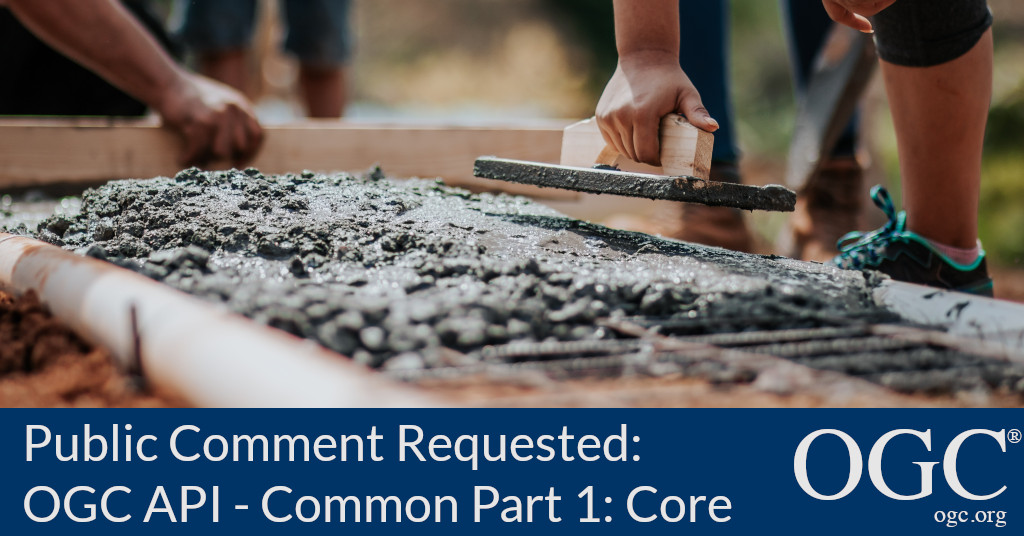OGC API – Common – Part 1: Core serves as a solid foundation upon which all OGC APIs can be built.

The Open Geospatial Consortium (OGC) is seeking public comment on the candidate OGC API – Common – Part 1: Core standard. Comments are due by May 24, 2021.
OGC APIs usher in a new age for location information on the web, enabling a much simpler way to share and access location information that is consistent with the architecture of the Web. The OGC API family of standards defines modular API building blocks to spatially enable Web APIs in a consistent way. Through the OGC APIs, the OGC community is standardizing how location information can be integrated: by any developer, with any other type of information, and into any type of application.
In the course of developing the family of OGC API standards, some elements proved to be common across them all. OGC has documented these common elements in the form of the OGC API – Common candidate standard.
OGC API – Common serves as a solid foundation upon which all OGC APIs can be built. The candidate standard identifies resources, captures compliance classes, and specifies requirements that are applicable to all OGC API standards.
Since OGC API – Common is the foundation for OGC API standards, a stable baseline is required prior to developing those standards. Yet the OGC API – Common standard cannot be finalized until it has been validated against those same standards. Therefore, the OGC API – Common SWG decided that OGC API – Common would go through at least two OGC Public Comment Periods. The initial request, in February 2020, established a “beta” version that was stable enough for use by other OGC API standardization efforts. Now that there is sufficient implementation experience, this final request seeks comment on the OGC API – Common candidate Standard as well as an answer to the question of whether OGC API – Common should be a Standard.
An alternative approach to making OGC API – Common an official OGC Standard has been proposed where OGC API – Common would instead take the form of an official registry of API building blocks fundamental to all OGC API Standards. In order to maintain the interoperability between different OGC APIs, these building blocks are to be reused when developing OGC API Standards. For more information, see this discussion on the OGC API – Common GitHub Repo.
OGC Members interested in staying up to date on the progress of this standard, or contributing to its development, are encouraged to join the SWG via this link on the OGC Portal.
The candidate OGC API – Common: Part 1, Core standard is available for review and comment on the OGC Portal. Comments are due by May 24, 2021, and should be submitted via the method outlined on the OGC API – Common – Part 1: Core Candidate Standard's public comment request page.
About OGC
The Open Geospatial Consortium (OGC) is an international consortium of more than 500 businesses, government agencies, research organizations, and universities driven to make geospatial (location) information and services FAIR – Findable, Accessible, Interoperable, and Reusable.
OGC's member-driven consensus process creates royalty free, publicly available geospatial standards. Existing at the cutting edge, OGC actively analyzes and anticipates emerging tech trends, and runs an agile, collaborative Research and Development (R&D) lab that builds and tests innovative prototype solutions to members' use cases.
OGC members together form a global forum of experts and communities that use location to connect people with technology and improve decision-making at all levels. OGC is committed to creating a sustainable future for us, our children, and future generations.
Visit ogc.org for more info on our work.
“
